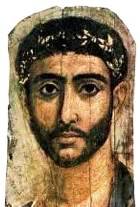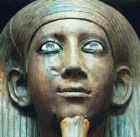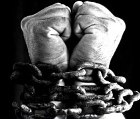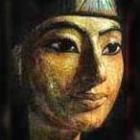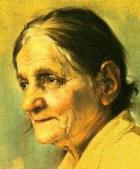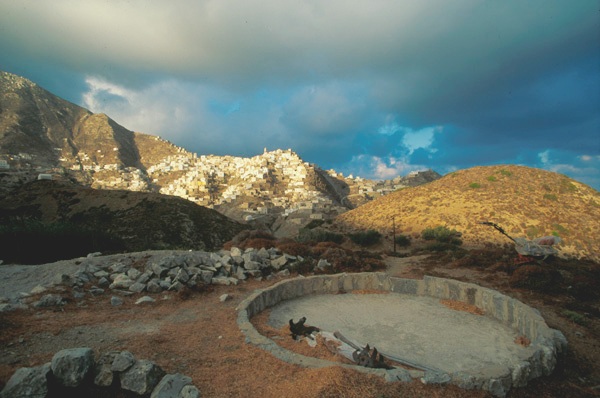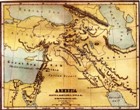Who was the young man David?
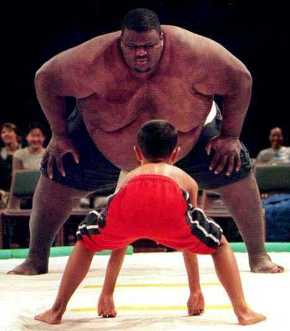
A David and Goliath confrontation: Sumo wrestler faces small boy
The Bible hero David was an early exponent of lateral thinking.
When he faced Goliath
- he was a young boy with a young boy’s strength,
- who faced an extremely strong enemy, an experienced fighting man.
Goliath had a long history of violence and intimidation, and David sensibly realized he could not beat this ogre by fighting him in the traditional manner.
What did David do?
- he looked at the problem
- recognised his own limitations
- asked for God’s help
- then wondered how he could use the skills he did have.
What were David’s advantages?
- a cool head
- an inventive brain
- the fact that he could use a slingshot with deadly accuracy
- and that he could choose his own weapon.
Lateral thinking not only saved his life but made him a hero.
The lesson? Don’t give up when you are outclassed in one area. We are all outclassed at some time. Think about the skills you have, and adapt the situation to fit your own abilities.
The Bible text
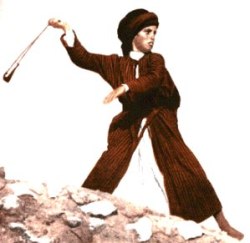
A young boy using a sling shot
‘And Saul armed David with his armor, and put a bronze helmet on his head and clothed him with a coat of mail. David strapped Saul’s sword over the armor, but he tried in vain to walk, because he was not used to armor.
So David removed it. Then he took his staff in his hand and chose five smooth stones from the creek, and put them in his shepherd’s bad. His sling was in his hand, and he approached the Philistine.
When the Philistine saw David, he scorned him, for he was only a boy. He said to David: “Am I a dog, that you come to me with a stick in your hand? I will feed your flesh to the birds and wild animals.”
But David ran quickly towards the Philistine. He put his hand in his bag, took out a stone, slung it, and struck the Philistine on his forehead; the stone sank into his forehead, and he fell face down on the ground.
There was no sword in David’s hand. He ran forward and stood over the Philistine’s body, grasped his sword, drew it out of its sheath, and killed him; then he cut off his head with it.’ 1 Samuel 17:38-51
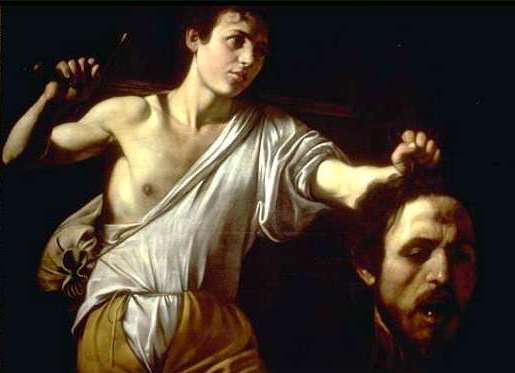
David with the head of Goliath, Caravaggio.
Who was Joseph, son of Jacob?
Joseph, son of Jacob, was one of the great heroes of the Old Testament. He was brilliant, subtle and extraordinarily capable, able to adapt to any situation and use it to his advantage.
But that was later on. As a young man he made some serious mistakes, and one of them was his arrogant treatment of his brothers – for which he paid dearly.
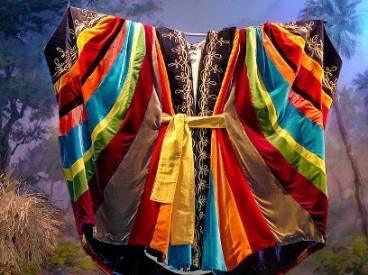
A version of the famous Coat of Many Colours
There are two motives for the crime that unfolded
- the deep hatred his own brothers felt for him – all of them, even Reuben who tried to save him. It sounds as if Joseph was one of those people who do nothing to hide their contempt for lesser mortals.
- the famous long sleeved coat, often incorrectly called the Coat of Many Colors. Long sleeves on a coat at that time meant that the wearer did not do any manual labor. He gave the orders to others, who carried them out. If Jacob gave Joseph a coat like that, it meant he put Joseph, the youngest, in charge of all his older brothers – which of course they resented.
As it turned out, Joseph was more capable than his brothers – but he was also their junior.
- Could Joseph have handled the situation better?
- Could he have been very capable, without offending to his brothers?
- How do we use our own gifts in a way that allows other people to shine too?
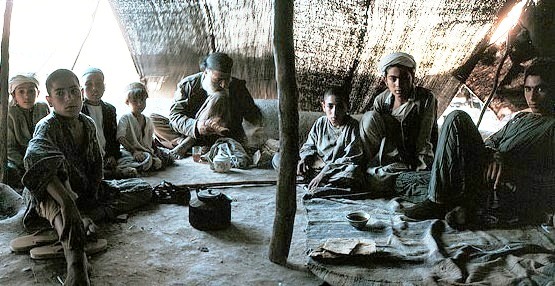
Nomadic family with father and brothers in a tent, photograph
The Bible text
‘Joseph, being seventeen years old, was shepherding the flock with his brothers; and Joseph brought a bad report of them to their father.
Now Jacob loved Joseph more than any other of his children, because he was the son of his old age, and he had made him a long robe with sleeves. But when his brothers saw that their father loved him more, they hated him, and could not speak peaceably to him.
Now his brothers went to pasture their father’s flock near Shechem. And Jacob said to Joseph “Come, I will send you to the. See if it is well with your brothers and with the flock; and bring word back to me.”
The plot to murder Joseph
So Joseph went after his brothers, and found them. They saw him from a distance, and before he came near to them, they conspired to kill him. They said to one another “Here comes this dreamer. Let us kill him and throw him into one of the pits; then we shall say that a wild animal has devoured him.”
But his brother Reuben said to them “Let us not take his life. Shed no blood. Throw him into this pit here in the wilderness, but lay no hand on him.” He planned to rescue him and restore Joseph to their father.
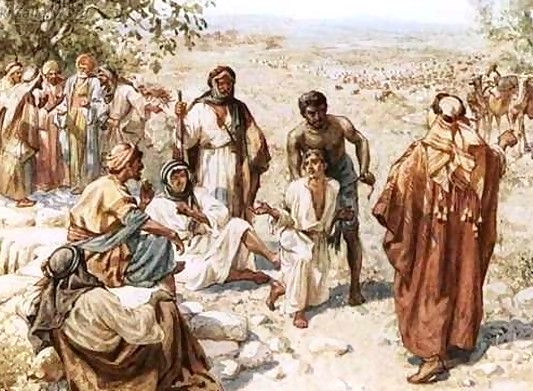
So when Joseph came to his brothers, they stripped him of his robe, the long robe with sleeves that he wore; and they took him and threw him into a pit. Then they sat down to eat.
Joseph sold as a slave
Then they saw a caravan of camels on its way to Egypt, and Judah said “Come, let us sell him instead of killing him. For he is our brother, our own flesh.” And his brothers agreed. They sold him to twenty pieces of silver, and Joseph was taken to Egypt.
Then they took Joseph’s robe, slaughtered a goat, and dipped the robe in the blood. They took the robe to their father; he recognized it. Then Jacob tore his garments and put on sackcloth and mourned for his son. He refused to be comforted.’ Genesis 37
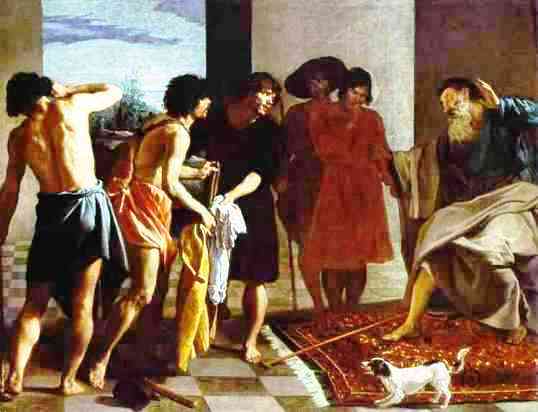
Jacob sees the bloodied coat of Joseph, painting by Velazquez
Jacob sees the bloodied coat of Joseph, painting by Velazquez
Who was Samuel in the Bible?
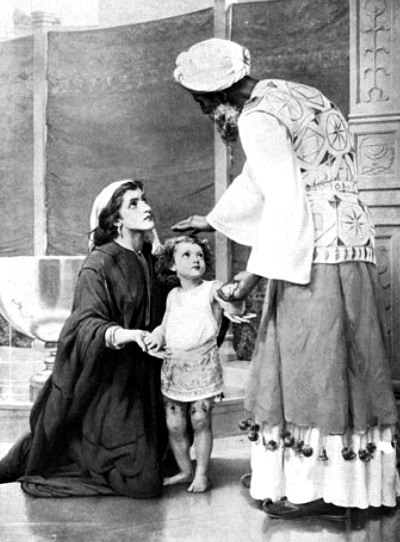
Hannah dedicates her son Samuel to God
Samuel lived in a time of social unrest when violence and contempt for law was common. He was the bridge between this lawless period and the time when Israel was governed by kings.
He became a powerful and influential man – but he was not always so. There was a time when he was just an insignificant student in the Temple.
When he was just a baby his mother had dedicated him to God, and he lived in the Temple precincts, where he was educated.
One night something extraordinary happened to him. He heard a call from God that made it clear he was to have an special destiny.
God calls Samuel three times
People around him could not hear the voice of God, but he could – and it came to him in the still of the night. It called him three times – until he responded and understood.
What can we learn from the story?
- that God has a soft voice that can only be heard in silence, when we are quiet and calm
- that God will keep on calling until we hear him
- that we have an obligation to listen for the voice of God.
The best way to hear God’s voice is when we are quiet and still. Try to put aside some time in your day when you can listen to what God is saying to you.
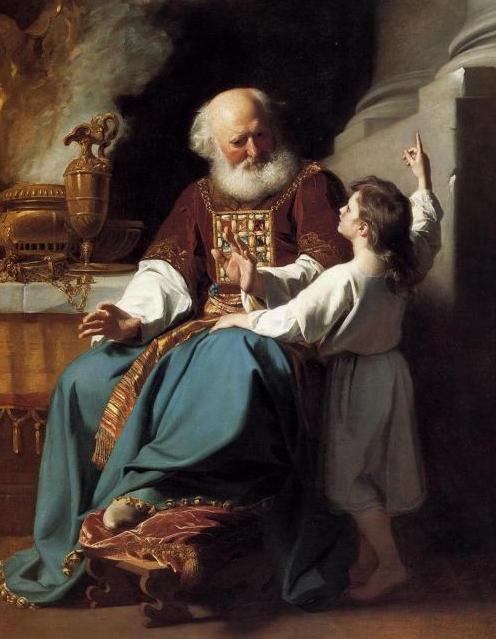
Samuel tells Eli that a Voice has called him
The Bible text
‘Now the boy Samuel was ministering to the Lord under Eli, the priest. At that time Eli, whose eyesight had begun to grow dim so that he could not see, was lying down in his room, and Samuel was lying down in the temple of the Lord.
Then the Lord called “Samuel! Samuel!” and he said “Here I am!” and ran to Eli, and said “Here I am, for you called me!” But he said “I did not call; lie down again.” So he went and lay down.
The Lord called again “Samuel!” Samuel got up and went to Eli, and said “Here I am, for you called me.” But he said “I did not call, my son; lie down again.”

Now Samuel did not yet know the Lord, and the word of the Lord had not yet been revealed to him. The Lord called Samuel again, a third time. And he got up and went to Eli, and said “Here I am, for you called me.”
Then Eli perceived that the Lord was calling the boy. Therefore Eli said to Samuel “Go and lie down; and if he calls you, you shall say ‘Speak, Lord, for your servant is listening.'” So Samuel went and lay down in his place.
Now the Lord came and stood there, calling as before “Samuel! Samuel!” And Samuel said “Speak, for your servant is listening.” 1 Samuel 3
Who was Ishmael in the Bible?
Ishmael was the eldest son of Abraham, by his wife’s slave, Hagar. He grew up expecting to be the next leader of his father’s tribe.
But this was not to happen. His father’s chief wife, Sarah, unexpectedly gave birth to a son when Ishmael was about fourteen years old – in tribal society this meant that he was already a man.
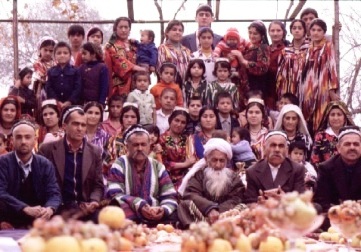
A large family with many generations
There was an uneasy truce between Hagar and Sarah, mothers of two rival sons of Abraham.
What happened at the tribal feast?
When it was time to wean Sarah’s baby there was a great tribal feast. Ishmael was playing with his baby brother, and something happened. We don’t know what it was, but it enraged Sarah. She demanded that Ishmael and his mother Hagar be cast out of the tribe.
Since she had always been the main wife, she wanted to be certain that her son would be the heir of Abraham – not Ishmael.
Abraham loved Ishmael, but he gave in to Sarah. The next morning he sent Hagar and Ishmael out into the unforgiving desert.
They were alone and abandoned. Hagar had been born in Egypt so she headed south in the general direction of Egypt, a desperate but futile hope. There was no chance at all they would make it.
Before very long their small supply of water was exhausted, and the pair began to die of thirst.

Acacia tree in the desert, photograph by F. Jenkins
Ishmael succumbed first – he may have insisted that his mother drink what little water there was. Hagar dragged him under the shade of a bush, then moved away, so that she would not have to watch his death agony.
But Ishmael was not a boy to give in easily. He prayed, as did his mother, and God heard them. An angel appeared and told Hagar where to find water – and the pair were saved.
What is the message of Ishmael’s story?
Don’t give up, even when things look hopeless. You never know what God has in store for you.
For the full story of Hagar and Ishmael, see BIBLE WOMEN: HAGAR
The Bible text
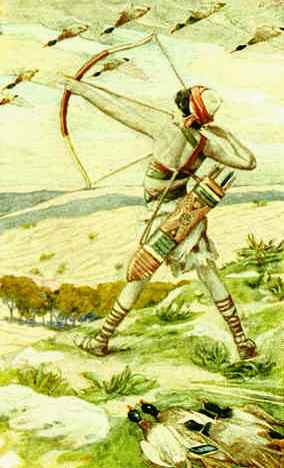
Ishmael the archer, James Tissot
‘So Abraham rose early in the morning and took bread and a skin of water, and gave it to Hagar, and sent her away. And she departed, and wandered about in the wilderness of Beer-sheba.
When the water in the skin was gone, she cast the child under one of the bushes. Then she went and sat down opposite him a good way off, about the distance of a bowshot; for she said “Do not let me look on the death of the child.”
And as she sat opposite him, she lifted up her voice and wept.
And God heard the voice of the boy; and the angel of God called to Hagar, and said to her “What troubles you, Hagar? Do not be afraid; for God has heard the voice of the boy. Come, lift him up, for I will make a great nation of him.”
Then God opened her eyes and she saw a well of water. She went, and filled the skin with water, and gave the boy a drink.
God was with the boy, and he grew up; he lived in the wilderness, and became an expert with the bow. He lived in the wilderness of Paran; and his mother got a wife for him from the land of Egypt.’
Genesis 21:8-21
Who was Ruth in the Bible?

Ruth: Godward painting of a beautiful young woman
Ruth and Orpah were two young Moabite women who married into the family of Naomi, an Israelite woman. During a famine Ruth’s young husband died, as did his father and brother.
The three women were left alone and defenceless. All they had was each other.
Both of the girls were Moabites, not Israelites, and so Naomi assumed they would want to return to their families.
Orpah decided to do just that, but Ruth could not be budged. She had shared loneliness, anxiety and grief with Naomi, and now that the older woman was completely alone, Ruth would not abandon her. She made a speech (see below), one of the most famous passages in the Bible, telling Naomi that she meant to stay with her.
Why did Ruth stay with Naomi?
Ruth realized that she was poor, a foreigner, and young – and that life would be tough for her in Bethlehem. But she was loyal to the older woman, and would not leave her to face these difficulties alone.
In return, Naomi decided to help the girl (and herself as well) by arranging a match between Ruth and a rich young landowner in Naomi’s hometown of Bethlehem.
Ruth had the good sense to listen to Naomi’s advice, and the love story had a happy ending – courage and loyalty triumphed over adverse circumstances. Ruth had a son Obed, who was the grandfather of King David.
Ruth has special significance for Christians: In the gospel of Matthew, four women were included among the ancestors of Jesus (Matthew 1:2-17), and Ruth was one of the four.
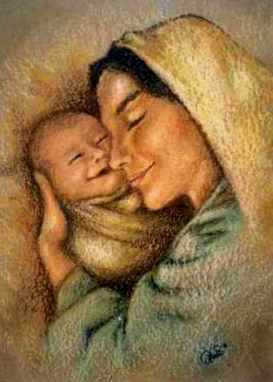
Young happy mother with her newborn baby, painting
What is the message of Ruth’s story?
- Try to recognize good advice when you hear it.
- Do not despair even when things look bleak. They were very bleak indeed for Ruth, but she kept her head and trusted in God – and was rewarded for her good sense.
The Bible text
But Ruth said, ‘Do not press me to leave you
or to turn back from following you!
Where you go, I will go;
Where you lodge, I will lodge;
Your people shall be my people and your God my God.
Where you die, I will die
There I will be buried.
May the Lord do thus and so to me
And more as well
If even death parts me from you!’
Book of Ruth 1:16-17
Young People in the Bible: David, Joseph son of Jacob, Samuel, Ishmael, and Ruth

